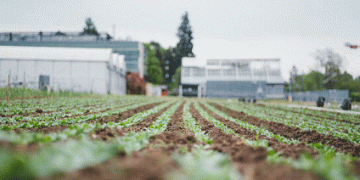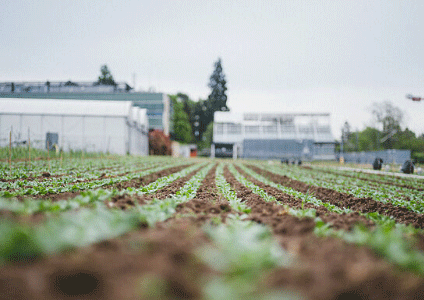Decades of intensive agriculture have severely depleted soil organic matter in Northwest Europe. According to the European Environment Agency (EEA), up to 70% of EU soils are unhealthy, with humus levels dropping by 2-3% in the last century, drastically reducing water retention. A 2023 study by Wageningen University found that degraded soils lose up to 50% of their rainwater runoff, exacerbating flood risks while worsening drought vulnerability.
HydroSoilWise: A Collaborative Solution
With €2.9 million in EU funding (Interreg NWE), the HydroSoilWise project unites 12 institutions across Germany, Belgium, France, and the Netherlands. Led by Viaverda, a Belgian agricultural research institute, the initiative focuses on:
- Enhancing soil water retention through improved tillage and organic amendments.
- Reducing erosion via cover cropping and reduced soil disturbance.
- Optimizing irrigation using smart water management tools.
Geisenheim University’s Cutting-Edge Research
Researchers at Hochschule Geisenheim are testing microlysimeters—sensor-equipped soil cylinders—to monitor water infiltration in real time. Prof. Dr. Jana Zinkernagel explains:
“Our soils are so compacted that rain just runs off. We need solutions that let water penetrate deeper, where roots can access it.”
Unlike traditional modeling, Geisenheim’s field data provides precise, actionable insights—a unique advantage in the project.
From Research to Real-World Impact
The project will develop an online toolbox and training programs to help farmers adopt these methods. Similar initiatives, like France’s “4 per 1000” soil carbon initiative, have shown that regenerative practices can increase water storage by 20-30% while boosting yields.
HydroSoilWise represents a critical step toward climate-smart agriculture in Northwest Europe. By improving soil health, the project not only mitigates drought and flooding but also ensures long-term food security. As extreme weather intensifies, such innovations are no longer optional—they’re essential.































